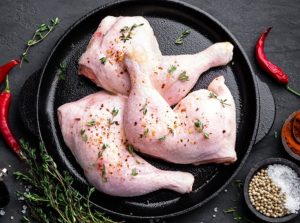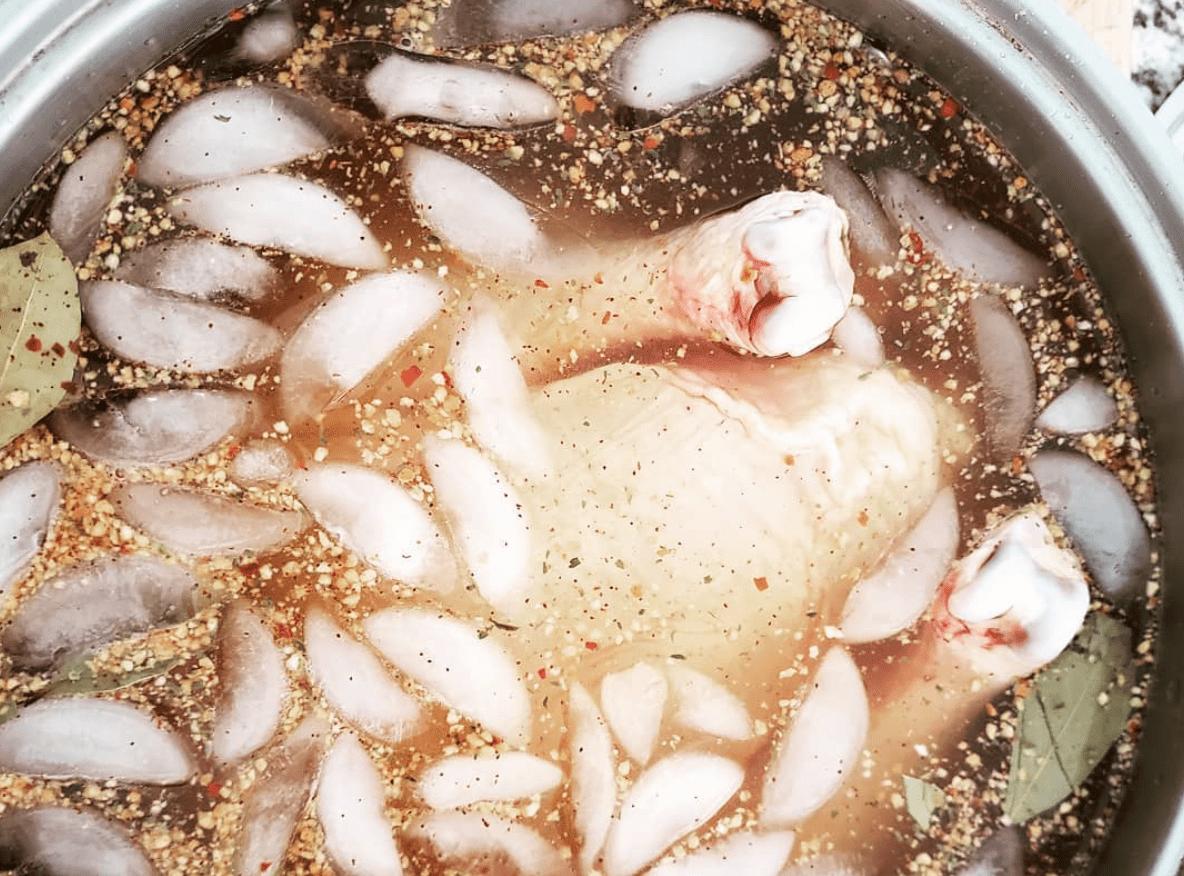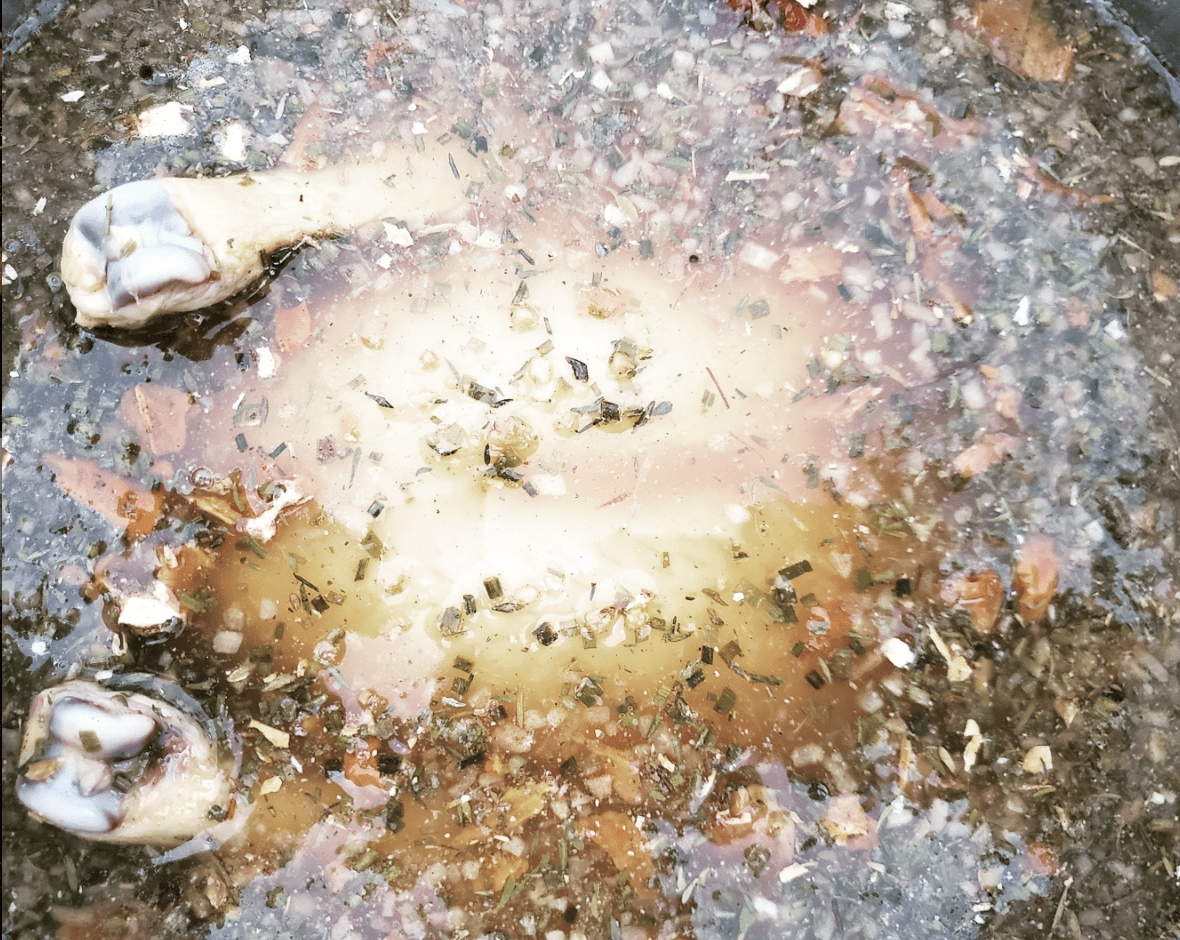Guess what, you can basically brine any meat, especially poultry, and it makes it taste way better. So good, in fact, Locavore Delivery’s founder Craig Taber won’t cook chicken or turkey without this step.
“If you ain’t brining, you are doing it wrong,” says Craig. “It makes the chicken way juicer and better all around.”
That’s right, and you heard it from the man behind the meat, brining is something that’s so simple and easy to do, even the worst cook can manage it. It only takes time, space and good meat, which can include, but is not limited to, heritage pork chops and tenderloin; whole pastured chicken, breasts, legs and wings; wild-caught shrimp; and pastured turkey, both whole and the legs. In the words of Craig, it’s hard, if not impossible, to screw up.
What You Need
To get started you need a large pot, or even a bucket, the meat, water and a lot of salt. The spices come second, and anything will do, be that bay leaf, peppercorns, dried oranges, sage, parsley, a cup of wine, a cold lager, garlic and so on. Put in a few tablespoons of your favorite spice blend, or a handful of spicy peppers that just came out of the garden. Then let the meat sit in the brine for around 12 to 24 hours, depending on the type and amount of protein. The flavor these things impart soaks into the meat, giving it a mild nuance of whatever spice was included.
Is It Magic?
But how does this magic method work? Well, when you brine, say a whole pastured chicken, the salt in the water pulls the moisture into the meat. Once the bird has been taken out and prepared for cooking, that moisture stays locked inside, creating the juicy chicken we crave. Just don’t ruin this bewitching trick by cutting into the meat too soon. Let it rest about ten minutes so those beautiful juices can ease back into all the crevices of your chicken breast, Thanksgiving turkey or heritage breed pork tenderloin. Once the meat has settled, it’s time to dig in.
Basic Measurements, If You Have….
- 12 lbs Turkey: 5 quarts water, 1 1/2 cups kosher salt, 1/2 cup seasoning
- 2 lbs of Chicken Breasts: 1 quart water, 1/4 kosher salt, 2 tablespoons seasoning
- 4 to 5 lbs Whole Chicken: 2 quarts water, 1/2 cup kosher salt, 1/4 cup seasoning
- 3 lbs Pork Tenderloin: 2 1/2 quarts water, 1/2 cup kosher salt, 1/4 cup seasoning
Quick Brine Recipes
The rule of thumb is to use one tablespoon salt for each cup of water. It should be very salty, like the ocean. From there, add any of these combos for some extra pizzaz to the brine. Let the meat sit in the brine, covered in the fridge or a cool spot outside for around 12 to 24 hours, but not over 48 hours. You can even add in frozen meat and let it defrost while soaking.
- Herb Brine for Pastured Turkey: 1 tablespoon each of thyme, rosemary, sage, peppercorn and parsley, two bay leaves
- Pickle Brine for Heritage Pork Tenderloin: 1 tablespoons each of coriander seed and sugar, 2 tablespoons each dill and vinegar, 2 garlic cloves
- Super Easy Pickle Brine: 1 cup pickle juice and 1 tablespoon peppercorn
- Sweet Lemon Brine for Pastured Chicken Breasts: 2 tablespoon honey, 1 lemon cut in half, 1 teaspoon each of peppercorn, rosemary and parsley
- Sake Brine for Shrimp or Heritage Pork Chops: 1 cup sake, tablespoon of miso, 1 teaspoon of powdered ginger or 1 tablespoon of fresh, diced ginger, 1 tablespoon soy sauce
- Quick Brine For Any Meat: Pick your favorite spice blend and add around 1 teaspoon per 2 cups of water (we love Savory Spices’ Jamaican Jerk Seasoning)


